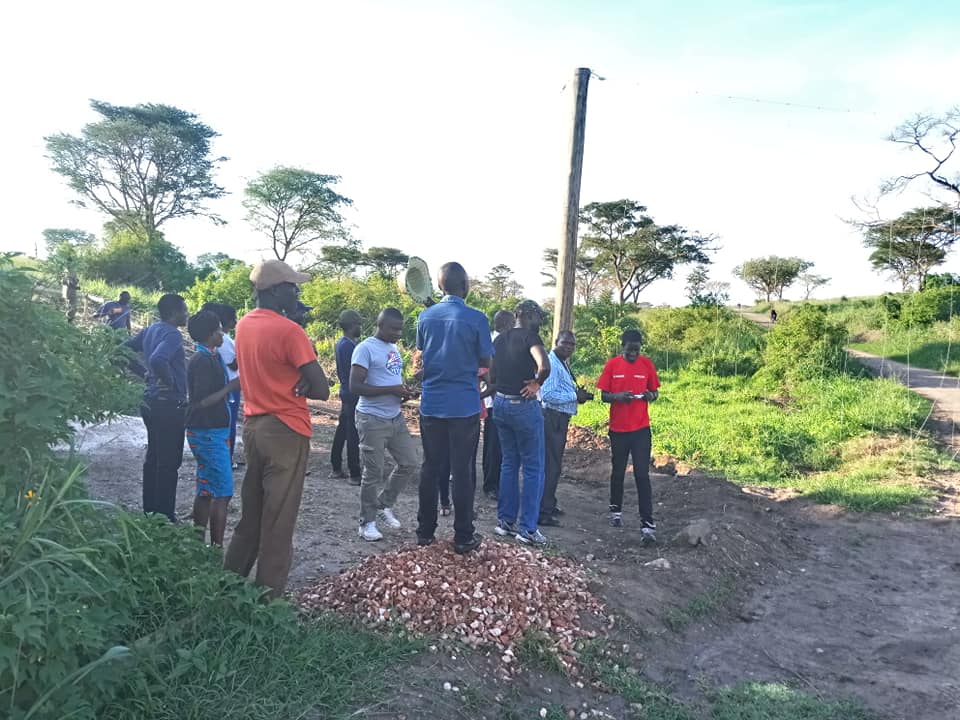Since the outbreak of the deadly global pandemic novel coronavirus, South Africa’s airline industry has been hit hard while it’s national carrier South African airways continued sinking after years of struggling on the market.
The continued lockdowns due to limiting the spread of coronavirus across major regional and global routes have impacted highly other Airlines that have been operating in South Africa and all networks that link to the Southern Africa destination). According to the latest projections by the International Air Transport Association (IATA), South Africa’s airline industry is expected to lose upto 10.7 million fewer passengers transported and chocking on a loss of about R40 billion ($2.29 billion).
The International Air Transport Association (IATA) made the projections presuming the coronavirus restrictions are not prolonged and airlines are allowed to start flying again.
IATA estimates that every job created in the aviation industry supports another 24 jobs in the wider economy. Based on this estimate, the industry body believes 186 850 jobs could be at risk in South Africa, and the industry’s contribution to the Country’s economy could plummet by about R68.4 billion ($3.8 billion).
At this stage, IATA foresees revenue losses of 32% ($4 billion) by African airlines, and has sent out an urgent appeal to African governments to take action and provide financial relief to airlines.
According to Muhammad Albakri, IATA’s regional vice president for Africa & Middle East, many governments in the region have committed to provide relief from the effect of Covid-19, but more help is needed.
IATA is calling for a mixture of direct financial support, loans, loan guarantees and support for the corporate bond market and tax relief. “The air transport industry is an economic engine. Airlines are fighting for survival in every corner of the world. Travel restrictions and evaporating demand mean that, aside from cargo, there is almost no passenger business,” Albakri warned.
“Failure by governments to act now will make this crisis longer and more painful. Airlines have demonstrated their value in economic and social development in Africa and governments need to prioritise them in rescue packages.”
In addition to financial support, IATA has called for regulators to provide measures to ensure air cargo operations, including fast track procedures; providing financial relief on airport and air traffic control (ATC) charges and taxes; and ensuring aeronautical information is published accurately and in time to allow airlines to plan and execute their flights.
South Africa, for example, has agreed to a full-season waiver to the slot use rule, allowing airlines and airports greater flexibility.
Albakri revealed on Thursday that IATA is seeing some flexibility regarding air cargo transport and a lot of African carriers are beginning to utilise passenger aircraft for cargo purposes and to carry emergency medical supplies. “But we’d like to see more flexibility by regulators to enable more carriers in the region to do this,” he said.
Asked whether he thinks the South Africa’s government is doing enough to support local airlines, he said he believes all governments understand that both the state-owned and private components of the industry need to be supported.
“Without having the entire supply chain and industry surviving, the recovery from Covid-19 will be very difficult. We have not seen evidence of governments giving preference to state-owned airlines over private-sector carriers,” he commented.
‘’The entire air transport industry is going through its darkest-ever crisis and we need governments throughout the world to recognise the danger this presents to their economies and survival or recovery.” He added.
The business rescue practitioners of South African Airways (SAA) announced on Thursday that, following the engagements with various embassies and in consultation with the relevant government departments, SAA has agreed to provide repatriation charter flights to various international destinations. The first of these chartered flights were for the repatriation of German citizens to their home country last week on Friday while Negotiations were ongoing with other governments for the repatriation of their citizens.
South African Airways (SAA) will operate the charter services subject to the health and safety provisions contained in the regulations and other relevant provisions during the lockdown.
In the meantime, Air France KLM reinstated its Martinair Cargo flights as soon as the South African government gave permission for them to resume. The first reinstated flight landed in Johannesburg from Amsterdam on Wednesday night, carrying 100 tonnes of urgently needed goods and supplies, which had been on hold since the lockdown limitations were announced. Medical and pharmaceutical goods were included in the cargo.
The latest IATA data released on Thursday last week indicated that African carriers posted the fastest growth (6.2%) in air cargo of any global region in February this year compared to February last year. This was just ahead of the coronavirus making starting to make its presence felt on the continent.
The latest data shows that passenger traffic on African carriers already started to decline. It was 1.1% lower in February compared to January this year after an increase of 5.6% increase was recorded between December and January. The decline between January and February is the weakest outcome since 2015, according to IATA.
About Guide2Uganda
Guide2Uganda (www.guide2uganda.ug) is the most comprehensive source of information about Uganda that exists on the web, with more content on Uganda and surrounding towns, attractions, museums and galleries than any other online guide that currently exists for Uganda as well as being a dynamic news and comprehensive events driven site with content being added daily.
According to WeFollow & Peer Index (whom both measure online influence) we are among the most influential online media organizations in Uganda. We were also awarded for ‘’Best Destination Website in Uganda’’ by Jumia Travel Uganda in the 2017-2018 Africa Travel Awards. If you are planning a visit to Uganda you can always reach us on; info@guide2uganda.ug




